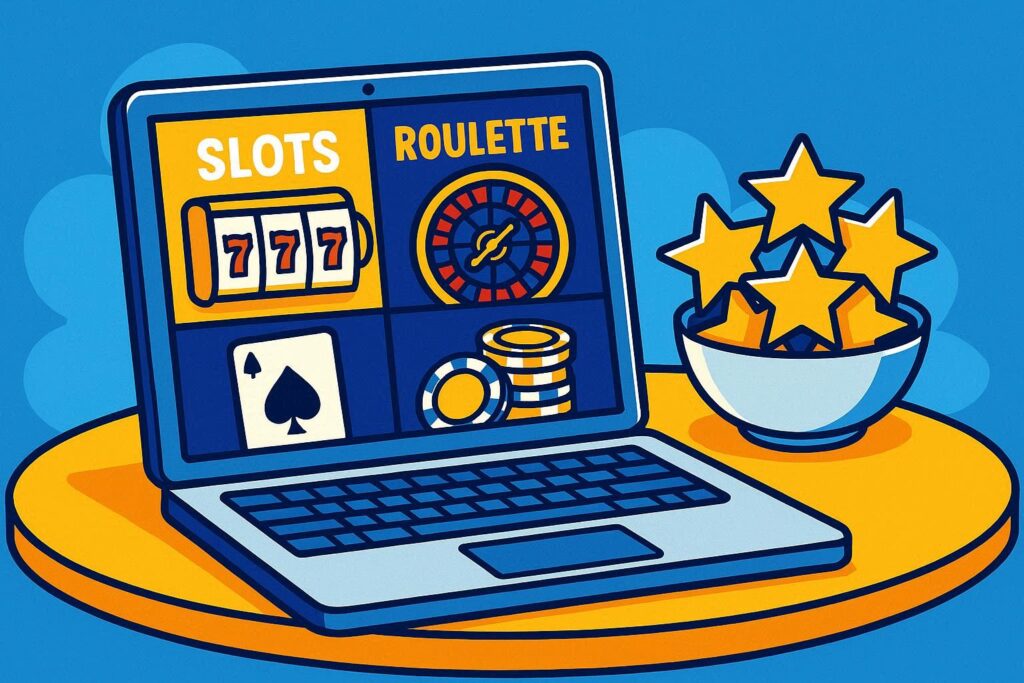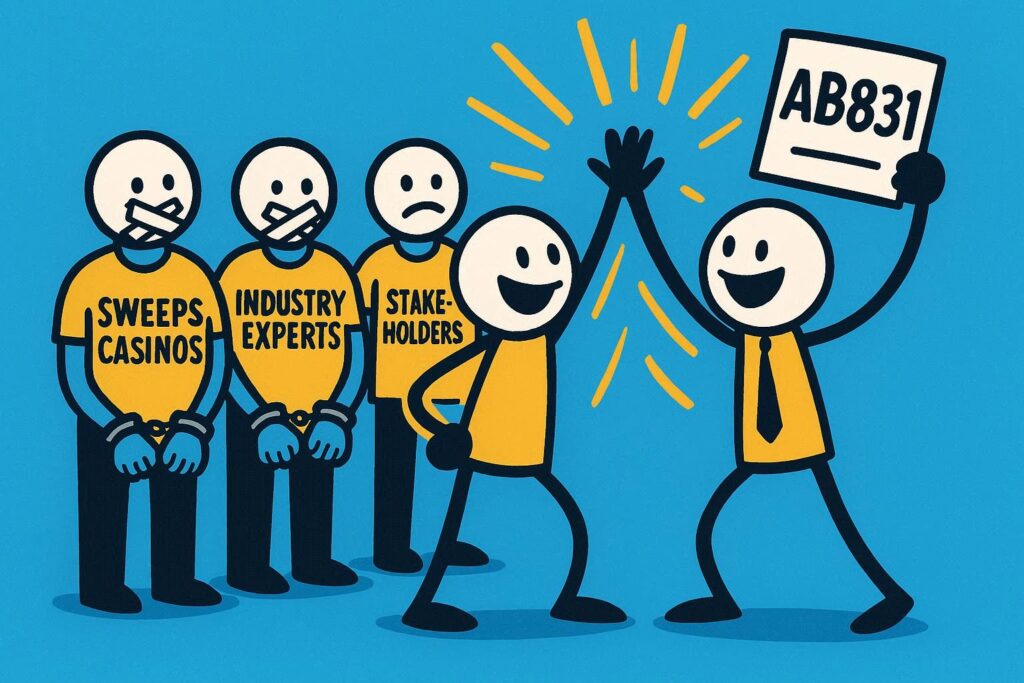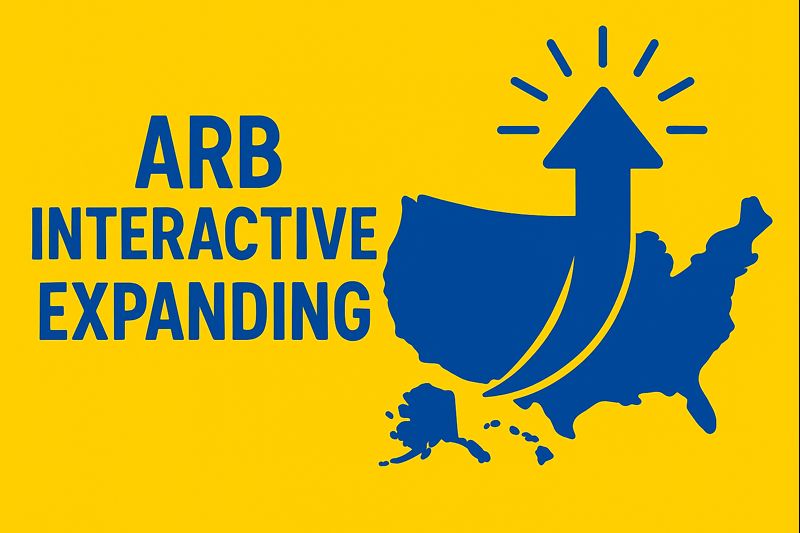Sweepstakes casinos can’t seem to escape the iGaming news spotlight of late, and the subject took center stage during a dedicated panel at the recent National Council of Legislators from Gaming States (NCLGS) conference.
The “Committee on Casinos” panel description opener, “This ain’t your granddad’s sweepstakes,” proved to be a key reference for understanding today’s murky sweepstakes waters, how we got here, and possible developments for the industry in the coming years.
Sometimes to look forward, you have to look back, and that is the case with the rise of sweepstakes casinos in the U.S.
Some of the confusion stems from the name itself, dating back some 50 years. Sweepstakes casinos of today are a far cry from the mail-in contests used as a marketing tactic for American Family Publishers (AFP) made famous by Ed McMahon delivering oversized checks to unsuspecting Americans.
Yet, the sweepstakes law under which AFP and other companies like Publishers Clearing House operated also provides the legal basis for today’s hotly debated sweepstakes gaming sites.
Adding to the complexity is the fact that sweepstakes laws, gaming laws and enforcement agencies for both vary greatly from state to state.
Legal model on which social casinos and sweepstakes gaming sites operate
During the panel, Bill Gantz (Trials, Gaming, and Intellectual Property Partner, Duane Morris) addressed the legal model for sweepstakes gaming sites and their predecessors: social casinos. It is impossible to understand the legal footing or legal arguments without going back to sweepstakes law in the U.S.
According to Gantz, who by his own account “defends gaming companies from consumer litigation,” the premise of legality for all sweepstakes is that the entry is free.
Enter the social gaming model.
Social casinos operate on the “freemium” model, wherein there are no prizes involved because any purchases made are for points or virtual currency that has no monetary value. Gantz noted that freemium games are not subject to licensure and have been operating in the U.S. since 2012. Globally, this gaming segment drives revenue of $8 billion annually and is growing, according to a report from Research and Markets.
Freemium games are a key to the whole conversation because most, if not all, sweepstakes gaming sites have a social gaming product baked in. That means you can play casino-like games in gold coin mode (or the equivalent, depending on the site). You can get those gold coins for free or for purchase, but even if you win more gold coins, you can not redeem them for real money. Gold coins are a virtual-only currency with no actual dollar value.
But these sweepstakes casinos also have a sweeps coin mode (or equivalent), meaning they are offering two different products, as Gantz explains. And this is where the sweepstakes law comes in.
“The premise for all of these operators is that you can use a sweepstakes as an incentive to market a product, service or brand, and that’s generally true in virtually every state. What is the product on this platform? It is, in fact, the gold coin games, the same ones that people play without sweepstakes, the same ones if they make a purchase – that is the bona fide product.”
So how does this fit within sweepstakes laws, as written? According to Gantz, “There’s no purchase necessary to enter and win. People can, as I mentioned, play the gold coins if they want, and they can use the sweeps function if they want.”
Outdated sweepstakes laws to blame?
Howard Glaser is Global Head of Government Affairs and Legislative Counsel at Light & Wonder and a major industry opponent of sweepstakes casinos. While discussing the dual currency system, he referred to the model as a “shell game.” He said most of the sweepstakes sites allow customers to purchase gold coins packages and receive sweeps coins as a “bonus.” Players can then choose to play in gold coin or sweeps coin mode, and sweeps coins can eventually be redeemed for the same currency used to purchase the coins.
Going back to sweepstakes law, a key component is the requirement of free entry (no purchase necessary) or alternate method of entry (AMOE). In the current sweepstakes gaming model, while you can purchase gold coins packages if you choose to do so, you are able to play the games without making a purchase, and some sites also offer a mail-in option for receiving virtual currencies on the site (hence, AMOE).
Are these gaming sites what state legislatures had in mind when they created sweepstakes laws in the 1970s? Probably not. But the ambiguity in those laws are clearly at the root of the contentious conversations surrounding this multi-billion-dollar industry.
“The thing about all the sweepstakes laws that exist is that the vast majority of states have no requirements on how to run a sweepstakes,” Gantz explains. “They don’t limit it to getting a bunch of entries and pulling a random winner out of a hat. That’s the old fashioned, physical type of sweepstakes that many of us in this room grew up with. But now we have all these types of games. There are all kinds of gamified sweepstakes that have nothing to do with pulling a random entry out of a hat.”
“…I look at the laws. I look at the regulations. There’s not one state, as I mentioned, that limits the format to old fashioned types of sweepstakes.”
Where does this leave us?
The NCLGS sweepstakes panelists do seem to agree on one thing: Clarity around the law and regulations governing sweeps and online casinos is likely needed.
Gantz put it succinctly: “If you want to regulate or prohibit, then you should change the law and change the regulations.”
Tres York, Senior Director of Government Affairs, American Gaming Association, said:
“Every state … has different laws, and so we strongly encourage gaming regulators and state attorneys general to look at these operations and make a determination one way or the other, as to whether they’re operating legally or illegally. And if they’re operating illegally, to take action against them.”
Glaser urged listeners to support regulators’ efforts.
“They’re very sophisticated, the regulators – they’re not acting in a vacuum. They need to know they have political support, and your political support for them, encouraging them and giving them good feedback. Public feedback is important.”
Andromeda Morrison, General Counsel, Ohio Casino Control Commission, emphasized the importance of state gaming regulators working closely with legislators to address policy questions like underage access to gambling. According to Morrison, clear policy against unregulated gambling operations at the state level provides a foundation for regulators and the Ohio General Assembly to address products operating in the state that may not be compliant with state law and Ohio gambling law. She also advocated for open communication between regulators and operators to help ensure compliance and protection of consumers.
Even on the sweepstakes operator side, the recently formed trade association for social and sweepstakes operators (SPGA) in its mission statement calls for clear regulations:
“The Social and Promotional Games Association and its members are committed to protecting players, promoting responsible innovation, and advocating for clear regulations that allow the industry to flourish.”
Expect debates to continue into 2025
Debates will likely continue around the legal standing of sweepstakes casinos into 2025 and beyond.
While a limited number of states have taken actions against sweeps operators to date, there still seems to be widespread lack of clarity on just what governing or regulatory bodies these decisions fall to, depending on the state.
Three states so far have sent cease-and-desist letters to sweepstakes gaming operators. It’s likely not a coincidence that all three of those states offer regulated iGaming: Michigan, Connecticut, and Delaware. In Michigan and Delaware, those letters originated from the state’s gaming regulator. In Connecticut, it came from the Department of Consumer Protection.
The only other U.S. states that have passed some form of regulated online casino legislation are New Jersey, Pennsylvania, West Virginia, and Rhode Island. A number of the NCLGS panelists mentioned the slow pace of iGaming legislation in the U.S. as a key catalyst for the accelerated proliferation of sweepstakes casinos over the last few years. And regardless of what side of the industry debate you’re on, there is no denying the appetite and demand for internet casino gambling options across the U.S.
As gaming industry consultant Dustin Gouker noted in his newsletter following the NCLGS session, we head into 2025 with a lot of questions and uncertainty around the fate of the sweeps industry.
“Some parts of the regulated gambling industry very much want sweeps to go away. However, the delta between that desire and the actual will and logistics to make that happen seems to be pretty wide,” says Gouker.
“Do regulators even have the jurisdiction to act to stop sweeps in a lot of states? And if they do, do they want to? Will attorneys general step into the action like they did in 2015-2016 for daily fantasy sports? Sometimes it would clearly take a new law to stop sweeps from operating; is a law banning or regulating sweeps a likely scenario in any state?”
Look for some of these questions to be answered, or at least debated, well into the new year.








